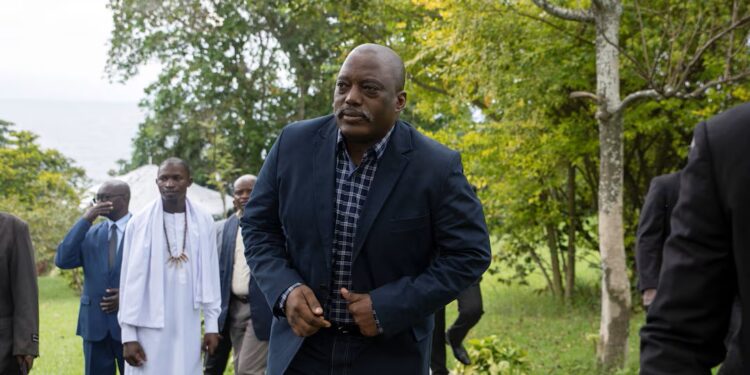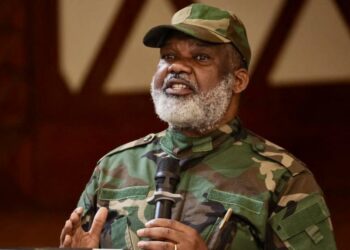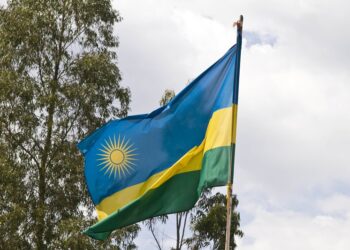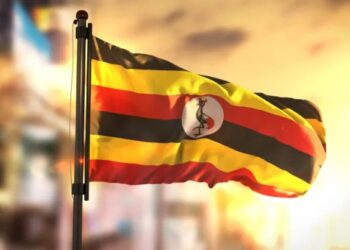The Democratic Republic of Congo (DRC) is endowed with natural resources to the extent that it could be one of the richest countries in the world. Nonetheless, this country is one of the poorest (in the world), with more than 70% of its population living in abject poverty. Economists, political scientists and sociologists have all been puzzled by how a country that is so rich in resources can be so abysmally underdeveloped and conflict-stricken. The DRC has substantial untapped gold, cobalt and high-grade copper reserves. It was the world’s largest cobalt miner in 2022, with a production of 130,000 tonnes, or nearly 68% of the world’s cobalt.
However, conflicts in the Democratic Republic of Congo continue to cause countless deaths and destruction of property, thus posing greater insecurity in the country and in the Great Lakes region. Armed rebel groups continue to commit war crimes, summary executions, rape, human rights violations, and forced recruitment of children into their forces.
The history of the Democratic Republic of Congo is a catalogue of domination and robbery. Situated in Central Africa, Congo is one of the most mineral-rich countries in the world. Throughout the twentieth century, its wealth was pillaged: first by the Belgians, then by the neocolonial rulers, with the complicity of international companies, and, finally, by its neighbours – again with international involvement. Congo is economically important not only to formal trade but also to global informal networks, which profit from the porous nature of its borders with nine countries and from the lack of effective legislation or regulation within the country.
Congo’s political story is also significant, reflecting the shifting patterns in global politics through the colonial period, the Cold War and the post-Cold War era. Some of the longest sequences of self-rule by indigenous complex societies in Africa have also been found there. Such characteristics give Congo great potential for political leadership and economic development on the continent of Africa in the future. But the political disorder and violence there since independence have blocked that potential so far.
Joseph Kabila and his supporters unveiled a new political party, the People’s Party for Reconstruction and Democracy (PPRD), in March 2002. In December he signed an agreement with rebels to end the war and to form a power-sharing transitional government. The agreement was ratified in April 2003; later that year an interim government was formed that kept Kabila as president and named rebel leaders to vice presidential and cabinet posts.
In 2006 the Democratic Republic of Congo (DRC) organised landmark presidential and parliamentary elections after three decades of the dictatorship of President Mobutu Sese Seko and a decade of war. After three years of a difficult transition, the elections produced a legitimate government under President Joseph Kabila. Subsequently, however, the democratic dispensation has struggled to transform the DRC from a failed to a functional state. Kabila came to power in 2001 after the assassination of his father, Laurent Kabila. He refused to stand down when his final term officially ended in 2016, leading to deadly protests, before finally agreeing to leave office following an election in 2018.
Nowhere is the danger of postwar violence greater than in Kivu, and especially in North and South Kivu provinces. The old interlocking questions of nationality and land tenure remain unresolved. Rwandan withdrawal could lead to the collapse of the RDC-Goma, which has never been politically successful, and revenge-seeking in which Tutsi and others aligned with the RDC and Rwanda will be victimised. Given the ambiguities of his own ethnic origins, this promises to be particularly dangerous for Kabila. Anti-Tutsi violence in North or South Kivu could even lead to renewed international war, undoing all progress made since the death of Laurent Kabila.
Congo’s decades-long conflict escalated in January, when the M23 rebels advanced and seized the strategic city of Goma, followed by the town of Bukavu, which they took in February. The fighting has killed some 3,000 people and worsened what was already one of the world’s largest humanitarian crises, with around 7 million people displaced.
Overview: Potential Political Shift and Implications
In 1996, Joseph Kabila returned to the Congo with his father, Laurent-Désiré Kabila, who seized power through “revolutionary” means. After the assassination of his father in January 2001, Joseph Kabila took over a country that had been a failed state since the late 1980s. With the support of the international community and a large part of the Congolese population, he had managed to profile himself as a man of peace, a promoter of the reunification of the country. Moreover, the coalition that supported him, the Alliance for a Presidential Majority (AMP), had a majority of seats in the National Assembly. But the president’s popularity waned during his first term.
On the one hand, the hopes that the promises of development had generated were largely disappointed, and on the other hand, the persistence of insecurity in the eastern part of the country degraded his image as a restorer of peace, particularly among Kivu inhabitants. After two years of deadly protests and mounting international pressure, he handed over power to Felix Tshisekedi in 2019 – a transition hailed as the country’s first peaceful handover of power since independence in 1960. But they later fell out. Kabila has been living outside the country for the past two years – he initially left to pursue a doctorate in South Africa.
That fallout is likely linked to another senior name in regional politics and the overall conflict: Corneille Nangaa, leader of the Congo River Alliance (AFC) movement, which sees the M23 rebels as their military wing. According to the report, Nangaa was named to lead Congo’s election commission in 2015 by then-President Kabila and also oversaw the 2018 election to choose Kabila’s successor. However, the latter of the two elections in particular was riddled with accusations of fraud, with numerous reports finding that Tshisekedi’s rival, Martin Fayulu, had actually won the vote. But Tshisekedi was named the winner of the election regardless.
Kabila’s record could therefore bolster AFC leader Nangaa’s position, who stated in an interview with the Associated Press on 25 March 2025 that neither international sanctions nor the DRC’s proposed minerals deal with the US would stop their fighting. The rebels see Tshisekedi’s pursuit of a minerals-for-security deal as a desperate move to bolster his regime amid military failures against their advances.
However, Kabila’s arrival comes after senators stripped him of his immunity over alleged support for the Rwanda-backed M23 rebel group, which has been fighting the Congolese army. The M23 have taken two major cities in the mineral-rich east since the start of the year. The region has suffered decades of conflict rooted in the spillover from Rwanda’s 1994 genocide and the struggle for control of minerals.
On February 21, a lobbyist representing the Congolese Senator Pierre Kanda Kalambayi sent letters to U.S. Secretary of State Marco Rubio and other American officials inviting U.S. investment in Congo’s vast mineral resources in exchange for helping to reinforce “regional stability“. “So if the Congolese want to make this work, it will probably not be by offering a U.S. company a mining concession. They’ll have to look at more complicated ways of engaging the U.S,” he added.
Before long, the US and the Democratic Republic of Congo are in talks over a minerals deal in the resource-rich central African nation, according to a senior US official. “You have heard about a minerals agreement. We have reviewed the Congo’s proposal. I am happy to announce that the president and I have agreed on a path forward for its development,” US senior adviser for Africa Massad Boulos said after meeting Congolese President Félix Tshisekedi in Kinshasa.
This is not new, as former DRC President Joseph Kabila negotiated several minerals-for-infrastructure deals with China, although those have been criticised for not being transparent and for failing to deliver what was promised. Currently, Chinese companies dominate the investment landscape in DRC’s minerals industry. Nine of the biggest cobalt mining regions are in the DRC’s southern Katanga. Of the mines in those regions, half are run by Chinese operators.
During Joseph Kabila’s presidency, the 2002 mining code was introduced, which was entirely orientated towards attracting foreign investment in the industry. This mining code was considered the “third best in Africa” in terms of the “advantages conceded to investors”. However, Kabila would also introduce an export ban on copper and cobalt concentrates. UNCTAD found that this ban significantly increased value addition within the DRC (UNCTAD, 2023).
Kabila’s government also renegotiated and even cancelled mining agreements with Western firms. These have created uncertainties for Western investors, to the point that today Glencore is the only company still holding assets in the Congolese cobalt industry. Potentially, Kabila could also find himself in the eye of a geopolitical storm. Kabila’s presidency was marked by significant Chinese investment in the DRC’s mining sector.
The possibility of a US-DR Congo agreement raises several questions. “This is symptomatic of the governance problems in our country,” said Jean Pierre Okenda, executive director of the Congolese NGO, La sentinelle des ressources naturelles. Okenda, a mining sector expert, expressed concerns that the negotiations, dictated by the DR Congo’s security emergency, may not benefit the Congolese economy. “Some people here think that the authorities are seeking above all to protect their power. Such an agreement should not be negotiated in backhanded deals; it should be submitted to parliament since it could have a major impact on the population,” he noted.
Amid the ongoing fighting, the army and armed groups announced peace talks in the Qatari capital, Doha, in early May. A Congolese government source, meanwhile, cautioned that any resolution of the conflict would take months. Also, the United Nations and Western governments say Rwanda has provided arms and troops to the ethnic Tutsi-led M23. Besides, Rwanda has denied backing M23. It says its military has acted in self-defence against Congo’s army and a Rwandan militia operating in eastern Congo that was founded by perpetrators of the Rwandan genocide, which targeted Tutsis and moderate Hutus.
Kabila Returns: What It Means for the DRC’s Stability
In April, according to a statement released to RFI, Kabila explained that he’s returning due to the country’s “out of control” situation—citing worsening security issues and the collapse of national institutions. Congolese government spokesperson Patrick Muyaya rejected Kabila’s allegations, saying he had “nothing to offer the country“. The Democratic Republic of Congo’s senate has stripped former President Joseph Kabila of his immunity, paving the way for his prosecution over his alleged backing of rebels in the east.
Congolese political analyst Christian Moleka likewise told AFP that the vote in favour could “reduce internal capacities for cohesion” and lead to a “risk of radicalisation and reinforcement of political rifts”. However, Kabila is back in the country for the first time in two years, having arrived in the rebel-held eastern city of Goma, spokespeople for the rebels as well as a youth leader from his party have said. Although analysts say any trial of Kabila could further destabilise the country, which has been battling the M23 rebellion since 2012.
Tshisekedi has in the meantime suspended Kabila’s People’s Party for Reconstruction and Democracy (PPRD), and security forces have raided several of the former leader’s properties. The government order freezing the activities of the People’s Party for Reconstruction and Democracy (PPRD) has not been lifted. But the party’s lawyers argue that without a court order, the suspension automatically expires after 15 days. An interior ministry statement justifying the ban on the PPRD accused Kabila of ‘overt’ activism, per report.
Before now, “Kabila met with representatives from Rwanda, Uganda and regional countries. He is trying to position himself as a credible alternative to President Felix Tshisekedi, who is not currently enjoying good relations with DRC’s neighbours,” said Fred Bauma of the Ebuteli research institute. “However, he will really have to convince them of his good will and capacity to be part of the solution. But that’s far from being a done deal.”
Kabila has also reached out to Congolese opposition politicians exiled in Europe, holding meetings with opposition leaders Moise Katumbi and Claudel Lubaya in Addis Ababa last December. “He is attempting to restructure the political opposition in DRC and may well be positioning himself to take the lead role with the support of various parties,” said Bob Kabamba, political science lecturer at Liege University in Belgium. Tshibangu noted that Kabila’s announcement to return comes at a politically sensitive time, as President Tshisekedi appears weakened amid military setbacks.
Notwithstanding, Kabila’s reappearance has drawn mixed reactions among Goma residents. Amani Safari, a gas seller, welcomed his presence. “His arrival in Goma is good because he’s as Congolese as any of us,” Safari said. “For us to have peace, we must go through him because he has a very good grasp of the problems the Congolese face.” Others expressed scepticism. “I don’t think Kabila can end the war,” said Alexis Bauma. “He was president of this country a long time ago, but he didn’t succeed. I don’t think that today, when the situation is getting worse, he’s coming to end it.”
But it could also complicate things. Erik Prince, the founder of the U.S. private military company Blackwater and ally of U.S. President Donald Trump, reached an agreement with the DRC in late 2024, finalised before the M23 rebel offensive in January 2025, to help secure and monetise the country’s vast mineral wealth. Also, he focuses on improving tax collection and reducing cross-border smuggling in the DRC’s mining sector, particularly in the copper- and cobalt-rich Katanga province. It is understood that Prince, who currently runs Reflex Responses, a private security company with an 800-man foreign mercenary force based in the United Arab Emirates, has no plans to deploy security contractors to active conflict zones, such as the M23-controlled eastern provinces of North Kivu or South Kivu.
While Prince’s security agreement targets stable mining areas, like Katanga (Kabila’s home region), not M23-controlled zones. While there is no definitive evidence that Prince was a direct associate of Kabila during his presidency, Prince’s business interests in the DRC, particularly through his company Frontier Services Group (FSG), overlapped with Kabila’s tenure. Kabila’s return could throw a spanner in these elaborate schemes, and he might be seen as a spoiler by an array of international players in the DRC’s vast mineral enterprise or as a patriotic force.
The Bottom Line
The conditions of a failed state remain a major obstacle to democracy, stability and sustainable development in the DRC. The DRC is an illustration of the law of Lavoisier ― As things change, everything remains the same. After the end of one of the cruellest regimes in Africa, after a war which has left more dead than the Second World War, after the long negotiations to end the war, and after the establishment of the transitional government followed by the 2006 democratic elections (which put in place the first legitimate government in four decades), the state in the DRC shows no sign of emerging from collapse, and the future remains uncertain and with little hope for the people of the DRC.
Conflict analyst Philippe Doudou Kaganda told DW that Congolese unity is at stake with Kabila’s return. “We’re going to get bogged down in conflict again, and it’s going to take on a dimension that’s much more internal than external,” he said. “There’s a risk that the discourse around Rwanda will be stifled.” Likewise, a Congolese political analyst, Hubert Masomeko, described the current political situation as a “dangerous standoff” between the Congolese government and Kabila. “Kabila’s arrival in Goma is a political counteroffensive in retaliation for the measures taken by Kinshasa,” Masomeko told The Washington Post.
Accordingly, Joseph Kabila’s re-engagement in Congolese politics would represent a return to personalised governance, potentially reversing fragile democratic gains under Tshisekedi. Once and for all, a more positive attitude should be sensitised and implanted in the minds and hearts of the respective stakeholders as a catalyst toward a sustainable peace environment in DRC and the region at large. There is also the need to empower the people so that they can fight for peace and influence their leaders and other stakeholders to support the peace initiative in the country.



























































